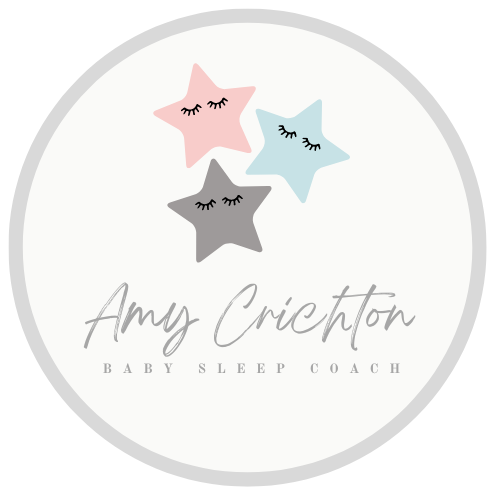This week I’m talking about sleep regressions. You know, those pesky things that come along just as you think you’ve got your baby’s sleep all sorted and bam – it’s all out of sync again.
But did you know that a sleep regression isn’t really a regression at all? It’s a form of progression as it’s actually your little one’s brain developing and coming to grips with all its new-found skills.
It’s so exciting for babies and children to develop new skills. Imagine spending so much time lying on your back and then one day discovering you can roll?! That must be pretty amazing, so no wonder our little pickles want to stay up all night practising and thinking about it. So really things are progressing, but sleep naturally becomes interrupted because of it.
Sleep regressions are often linked to key developmental milestones such as rolling, sitting up, standing, walking and language development. For toddlers, they can also be related to life changes such as potty training, separation anxiety or a build-up of overtiredness from nap and bedtime resistance.
Technically, a sleep regression could happen at any time. A sleep regression could also be personal to your child, for example, if they’re experiencing a lot of big changes in their life and feeling anxious about it (such as moving house at the same time as starting in a new childcare setting, for a random example).
But commonly, sleep regressions are seen at the ages below and they’re mainly connected to developmental milestones.
- 4 months
- 6 months
- 8-10 months
- 12 months
- 18 months
- 2 years
Not every child will experience every single sleep regression and some may be more significant and noticeable than others. It’s also worth noting that sleep regressions may not happen exactly at these ages, but roughly around these times. This is because children develop at different rates. What it shows, though, is that you may be able to expect a sleep regression around the time your little one is experiencing a developmental milestone.
Tips on getting through a sleep regression
The main thing to remember is – don’t panic! Sleep regressions are temporary. However, there are ways to weather the storm (so to speak) and try and prevent that pesky overtiredness building up and making things even worse.
1. Be consistent – don’t change your routine. The sleep regression is temporary, so don’t make any huge alterations especially for it unless you’re prepared to continue doing those things once the regression has passed.
2. Having said that, do bear in mind your child’s overall sleep needs. For example, around the 6 month sleep regression, your little one’s sleep needs are changing, (in terms of night time expectancy and number of naps etc), so bear this in mind. Check out my sleep needs chart to understand this in more detail.
3. Don’t be afraid to offer extra sleep. This can include extra naps, longer naps or early bedtimes to make up for lost sleep. This will help keep overtiredness at bay. The last thing you want is serious amounts of overtiredness creeping in and making sleep even worse. This doesn’t mean completely changing your routine, this is simply topping up sleep, which can be really important to prevent overtiredness.
4. Offer extra support if your little one needs it, BUT be careful not to overcompensate and end up developing new sleep crutches. If you don’t currently rock your child to sleep, for example, don’t start doing it every night for the sleep regression as you may find that your little one still wants you to do that after the regression has passed and that may be difficult to move away from.
5. Encourage your little one to practise their new-found skills as much as possible during the day. Giving your little one more of these opportunities may help reduce the amount of night-time disturbance they cause.
Being as consistent as possible through a sleep regression (and don’t forget, sleep regressions can last for anything up to six weeks) means that once the regression has passed, things should go back to normal. However, if that’s not the case for you, there are gentle techniques you can use to get your little one’s sleep back on track again. Book your FREE 45 minute discovery call to chat about how I can help you.

